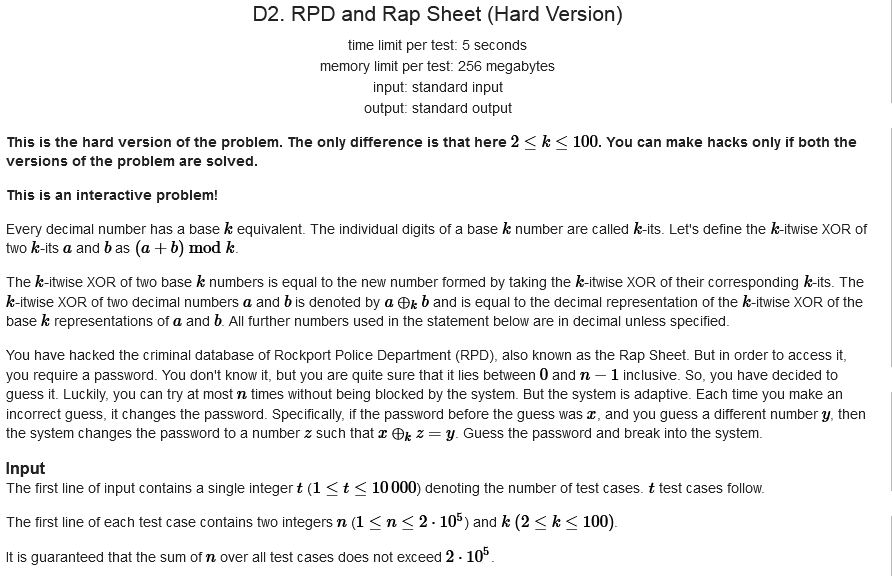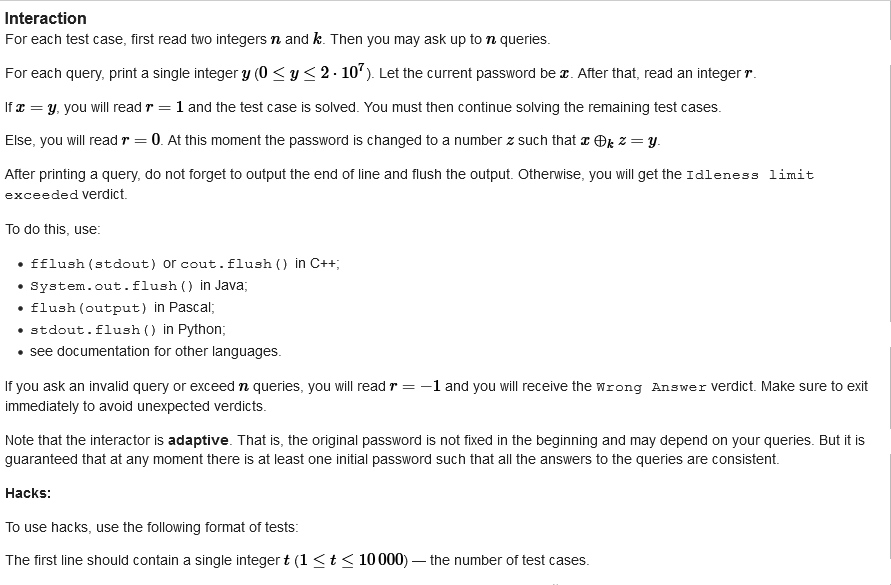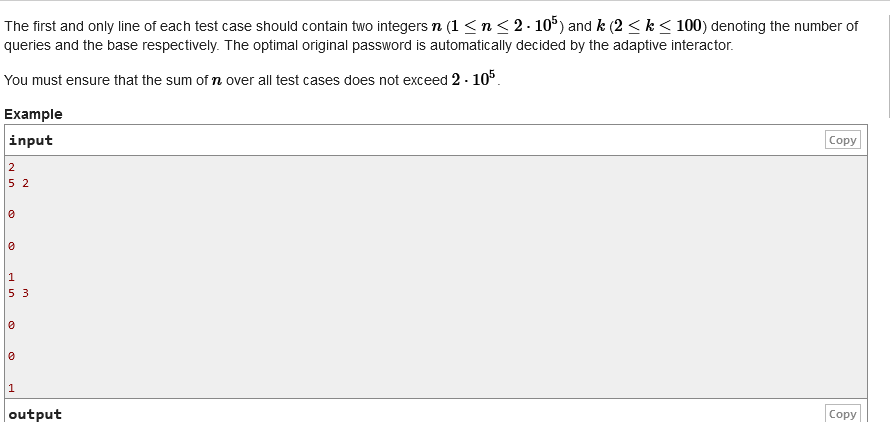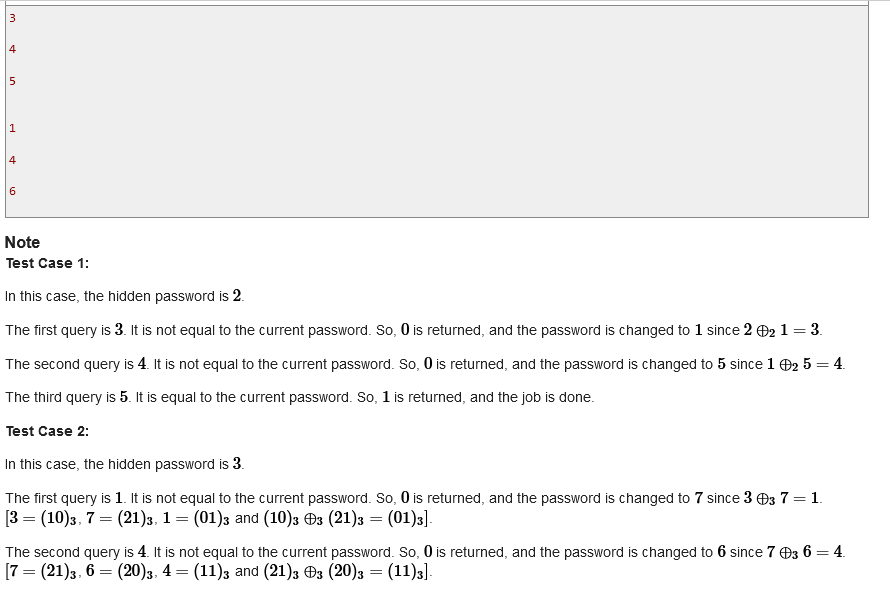https://codeforces.com/contest/1543/problem/D2





The topic is easy to understand, k-base module, rather than the simple binary
To do this problem, we must first deduce some formulas
If a location is originally a, it becomes C after asking B, satisfying (A + C) mod k = B
So we have, (K + B - A) mod K = C
Next we can find the rule by enumerating the first few cases
Now, let’s record the original answer with X.
If x = 0, then the first time we ask 0 is the answer.
Let (K + a-b) mod K be (a-b)
If x = 1, then after we ask 0, X becomes (0-1), we ask the end of this
If x = 2, then after we ask 0 and (0-1), it becomes ((0-1) - (0-2)) = (2-1), we ask the end
If x = 3, then it becomes ((2-1) - ((0-1) - (0-3))) = (2-1) - (3-1) = (2-3), we ask the end.
So far, we have come to the conclusion that except 0, I can be obtained by I-1 and I by subtraction in the sense of modulo K. And we need to make sure that we subtract the odd from the even.
Code:
#include<bits/stdc++.h>
using namespace std;
typedef long long ll;
int t, n, k;
ll cal(ll u)
{
ll a = u, b = u;
if(a & 1) a ++; else b ++;
ll res = 0, ka = 0, kb = 0, p = 1;
while(a || b)
{
ka = a % k, kb = b % k;
res += ((k + ka - kb) % k) * p;
p *= k;
a /= k, b /= k;
}
return res;
}
int main()
{
cin >> t;
while(t --)
{
cin >> n >> k;
cout << 0 << endl;
ll u = 0;
while(cin >> n && !n) cout << cal(u ++) << endl;
}
}

